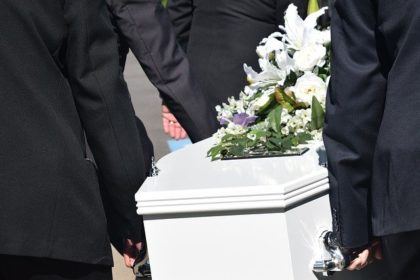
Case summary written by Celeste Frank and checked by Jordan Dias.
23 April 2021
Background
The First Applicant and the Deceased were married in a civil marriage in and during October 1998. One child was born of the marriage in January 2000, who is the Second Applicant in this matter.
In July 2020, the Deceased commenced divorce proceedings. The First Applicant alleged that her attorney and the attorney of the Deceased were in negotiations and that for this reason, no plea had been delivered. The Deceased died in January 2021.
The First Respondent is the Deceased’s oldest brother, with whom he resided in Tsakane prior to his death. The First Respondent advised the First Applicant of the death of her husband. With regard to funeral arrangements, the First Applicant stated: “The intention of the deceased was and is very clear that he wanted me to give him a dignified funeral”. The First Applicant, without explaining the marital problems, further stated: “If I do not bury my deceased husband which I married and loved for all these years, his soul will never rest in peace”. The First Applicant did not address the issue of whether the Deceased died intestate or not. As such, there was no evidence of a burial wish in a will.
The Second Respondent is a funeral services business where the Deceased’s body was held when the First Applicant was informed of the death of her husband. The First Applicant and the First Respondent visited the funeral parlour where the First Applicant signed certain, unspecified documents. The First Applicant averred that she and the First Respondent made plans for a funeral in the East Rand to be held on 30 January 2021. On 26 January 2021, the First Respondent advised the First Applicant that he had instructed the Second Respondent not to release the body to her for burial. On 27 January 2021, the First Applicant discovered that the body had been released to the First Respondent and that the Deceased would be buried on 30 January 2021 in Limpopo, a place which was not known to her. Later, in reply, the First Applicant stated that her mother-in-law had never recognised her “as the legal wife” of the Deceased and that she never recognised her marriage.
Court held
The Court held that the test in a normal application for an interdict does not find easy application in this matter. Due to the urgency of the matter, the factual disputes should be resolved as best as one could and an equitable finding must be made. In the Court’s view, this points to a more robust approach.
The Court stated that one should first have regard to the facts, as set out by the First Applicant, together with any facts set out by the Respondent which the Applicant cannot dispute, and then to consider whether, having regard to the inherent probabilities, the Applicant could, on those facts, obtain final relief at a trial.
The Court applied the fairness approach and looked at three more recent cases:
- Mantame J, in W and Others v S and Others [2016] ZAWCHC 49, ordered, in not dissimilar circumstances, that the estranged spouse should not determine where the Deceased was to be buried, the Deceased’s family should do so;
- Adams J in T M v C M and Another [2019] ZAGPJHC 412, came to a different conclusion in a case where the marriage could not be described as a marriage on paper only. He dealt with a case where the parties were experiencing marital problems, but the parties had not separated yet, and the surviving spouse (who had sued for divorce) did not proceed as she hoped to save the marriage. The parties were not estranged. They also had a 3-year-old child. There was however evidence that the Deceased intended to vacate the matrimonial home. Weighing up several factors listed in the judgment, the learned judge found that the fairest order was that the surviving spouse should be allowed to bury the Deceased. The judge made no costs order; and
- Mokgoathleng J in Sengadi v Tsambo; In Re: Tsambo [2019] 1 All SA 569 (GJ), dealt with a case where there was a dispute about a customary marriage. At some time, the spouse of the Deceased left the home due to the Deceased’s infidelity and drug dependency, it appears not long before his death. The learned judge held that the customary marriage was valid, but found that the family of the Deceased should bury the Deceased. No cost order was made.
Against these cases, the Court considered the following facts: the age of the Second Applicant (who was no longer a young child living with the Deceased under one roof), the apparent, prolonged lack of contact between the Deceased and his estranged spouse, the length of separation – it was for several years; and the strength of the case (although disputed to some degree) that the marriage had irretrievably broken down.
The Court held that if they must resolve this dispute on paper, the First Applicant’s case is the less plausible if read in the context of the common cause facts and the lack of evidence about any will.
The Court held that the Applicants should not determine the Deceased’s burial arrangements, and the application stands to be dismissed. There were no costs order as the Deceased’s mother is not a party to the proceedings, and the overall impression is that burial arrangements were made to the exclusion of the Applicants.
Value
In this case, our attention is drawn to the importance of the factual disputes between the parties in the matter to decide who should determine how the Deceased was to be buried.

